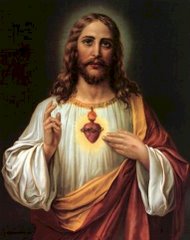 Taken from the Vatican Information Sercvice:
Taken from the Vatican Information Sercvice:SUMMARY OF POPE'S APOSTOLIC TRIP TO PORTUGAL: 11 - 12 MAY
" POPE REPLIES TO QUESTIONS FROM JOURNALISTS
VATICAN CITY, 11 MAY 2010 (VIS) - This morning during his flight to Portugal, the Holy Father responded - as he traditionally does on his flights abroad - to a number of questions put to him by the journalists accompanying him on the papal plane.
Answering a query about the current secularisation of Portugal, a once profoundly Catholic country, the Holy Father replied that Portugal "has carried the faith to all corners of the world; a courageous, intelligent and creative faith. ... The dialectic between secularism and faith in Portugal has a long history", he said, noting how "over centuries of discussion between enlightenment, secularism and faith, there has never been a lack of people who have sought to build bridges and create dialogue".
"I believe that the task and mission of Europe in this situation is to discover such dialogue, integrating faith and modern rationality into a single anthropological vision which completes the human being and thus also makes human cultures able to communicate with one another. Thus I would say that secularism is normal, but separation and contrast between secularism and the culture of faith is anomalous and must be overcome. The great challenge of the current time is for the two to meet and thus discover their true identity. This, as I have said, is a mission for Europe and the [great] human need of our own history".
Replying then to another question about the economic crisis, which some people believe could endanger the future of the European Union, Benedict XVI affirmed that "ethics are not something external, but inherent to rationality and economic pragmatism. ... Catholic faith, Christian faith, has often been too individualist, it left concrete and economic matters to the world and thought only of individual salvation", he said.
Yet "the entire tradition of the Church's social doctrine has sought ... to widen the ethical and faith-related dimension, over and above the individual, towards responsibility for the world, towards a rationality 'moulded' by ethics. Moreover, events on the markets over the last two or three years have shown that the ethical dimension is inherent and must become part of economic activity, because man is one, and what counts is ... a sound anthropology that embraces everything. Only in this way can the problem be resolved, only in this way can Europe accomplish its mission".
The third question put to the Pope concerned the significance of the apparitions of Fatima and whether the third secret, apart from referring to the shooting of John Paul II, also referred to the Church's suffering for the sexual abuse of minors.
"Apart from the great vision of the Pope's suffering, which we can primarily ascribe to Pope John Paul II", said Pope Benedict, the apparitions "indicate events of the future of the Church, which develop and are revealed little by little. Thus it is true that, apart from the moment indicated by the vision, we see the need for a passion of the Church, a passion naturally reflected in the person of the Pope, but the Pope stands for the Church and thus it is the sufferings of the Church that are being announced".
"As for the novelties we can discover in this message today", he went on, "we may see that attacks against the Pope and the Church do not only come from outside; rather, the sufferings of the Church come from inside the Church, from the sin that exists in the Church. This was always common knowledge, but today we see it in truly terrifying form: the greatest persecution of the Church does not come from external enemies, but is born of sin within the Church. Thus the Church has a profound need to relearn penance, to accept purification, to learn forgiveness but also the need for justice. Forgiveness does not replace justice".
PV-PORTUGAL/ VIS 20100512 (800) "





No comments:
Post a Comment